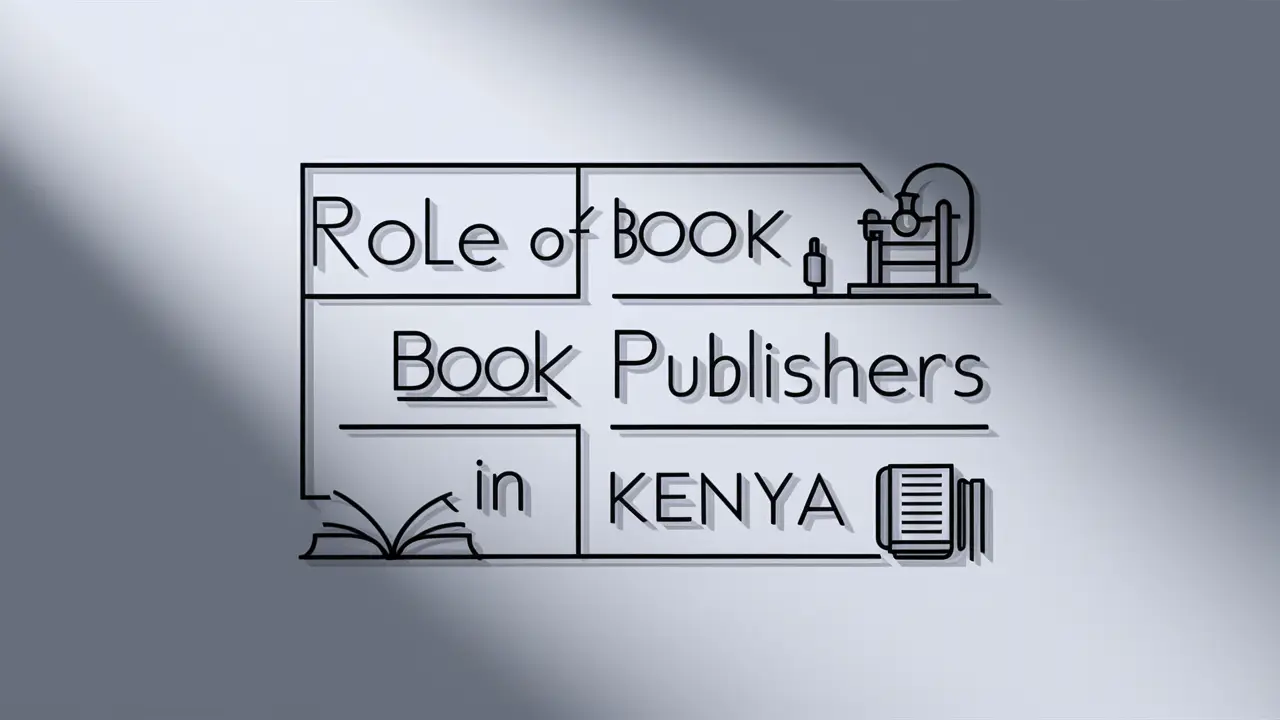Publishing companies in Kenya play a critical role in shaping the literary landscape and influencing market dynamics.
They contribute significantly to local literature and educational materials.
Market dynamics
Publishing companies in Kenya are key players in the education sector. They provide textbooks and learning materials essential for schools and universities.
By doing so, they help maintain a steady supply of quality educational content.
Also, these companies enable local authors to reach broader audiences by handling the logistics of printing, distribution, and sales.
This support helps authors focus on writing rather than dealing with the complexities of the market.
The companies also engage in marketing and promotional activities to increase book sales. This effort includes organizing book fairs, participating in literary events, and utilizing digital platforms to widen their reach.
Overall, the activities of publishing companies contribute to a vibrant literary market.
Impact on local literature
Publishing companies help preserve and promote Kenya’s diverse cultures through local literature.
They publish works in various languages, including Swahili and regional dialects, allowing more people to access these cultural stories.
By investing in local authors, publishing companies encourage the creation of new literary works. These works can highlight local issues, traditions, and experiences, enriching the country’s literary heritage.
Moreover, they support young and emerging writers through competitions, mentorship, and grants.
This nurturing environment helps bring new voices to the literary scene and ensures continuous growth and innovation in Kenyan literature.
In short, these publishing companies not only contribute to the economy but also significantly impact the cultural and educational fabric of Kenya.
Trends in the publishing industry in 2026
The publishing industry in 2026 is marked by significant shifts.
Key trends include digital transformation and sustainability practices, both playing crucial roles in how content is created, marketed, and consumed.
Digital transformation
Digital technologies continue to reshape the publishing industry. Ebooks and audiobooks are seeing increased demand compared to print books.
The convenience of reading or listening on the go makes these formats more appealing.
Artificial Intelligence (AI) is another game-changer. AI is used for content creation, making writing and editing more efficient.
It also aids in marketing by analyzing reader preferences and suggesting targeted promotions.
Kenyans are starting to integrate AI in their creative workflows.
Social media platforms are vital tools for authors and publishers. They help build a community and connect directly with readers, enhancing engagement and loyalty.
Sustainability practices
Sustainability is becoming a top priority. The environmental impact of traditional publishing methods has led to a push for greener practices.
Many companies are adopting eco-friendly printing techniques. This includes the use of recycled paper and vegetable-based inks which reduce harmful emissions.
Digital-only publishing is another step towards sustainability. This reduces the need for physical resources and minimizes waste associated with unsold books.
Packaging is also getting a sustainable makeover. Publishers prefer biodegradable and reusable materials, reducing plastic waste and environmental footprint.
These changes not only help the planet but also appeal to environmentally conscious readers, aligning with global sustainability goals.
Challenges faced by Kenyan publishing companies
Kenyan publishers face several significant challenges.
These issues range from high piracy rates to difficulties in distribution that impact both the reach and profitability of their books.
Piracy issues
Piracy is a major hurdle for publishers in Kenya.
The illegal distribution of books, whether through photocopying or unauthorized digital copies, severely affects revenue.
Many small publishers struggle because they can’t compete with the low or zero cost of pirated editions.
Authors also suffer, as their profits and incentives to produce new work decrease.
Although laws exist to combat piracy, enforcement is often weak. This makes it easy for pirates to operate freely, reducing the perceived value of legitimately purchased books.
The lack of effective regulation and public awareness further exacerbates the issue.
Distribution barriers
Distribution poses another serious challenge. Many parts of Kenya lack proper infrastructure, making it hard to get books to readers.
Rural areas are especially affected, limiting the market to urban centers.
Logistics are often costly, and smaller publishers can’t afford the high transportation expenses. This limits their ability to distribute widely, forcing them to rely on local markets.
Digital distribution promises some relief, but internet access is not universal, and digital literacy levels vary. Partnerships with established distributors could help, but such collaborations are not yet widespread.






